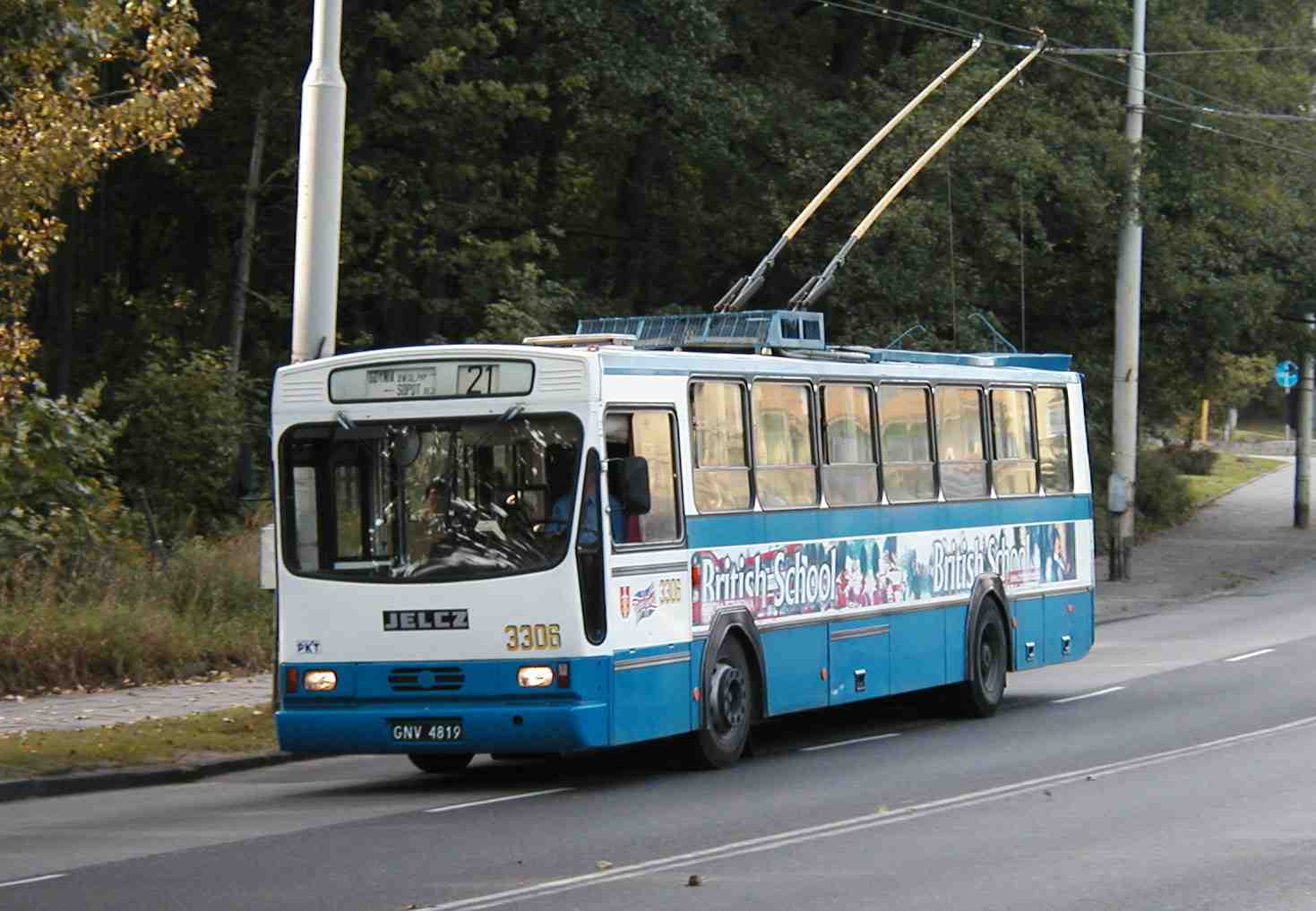
Jelcz 3306 on route 21 to the resort of Sopot.
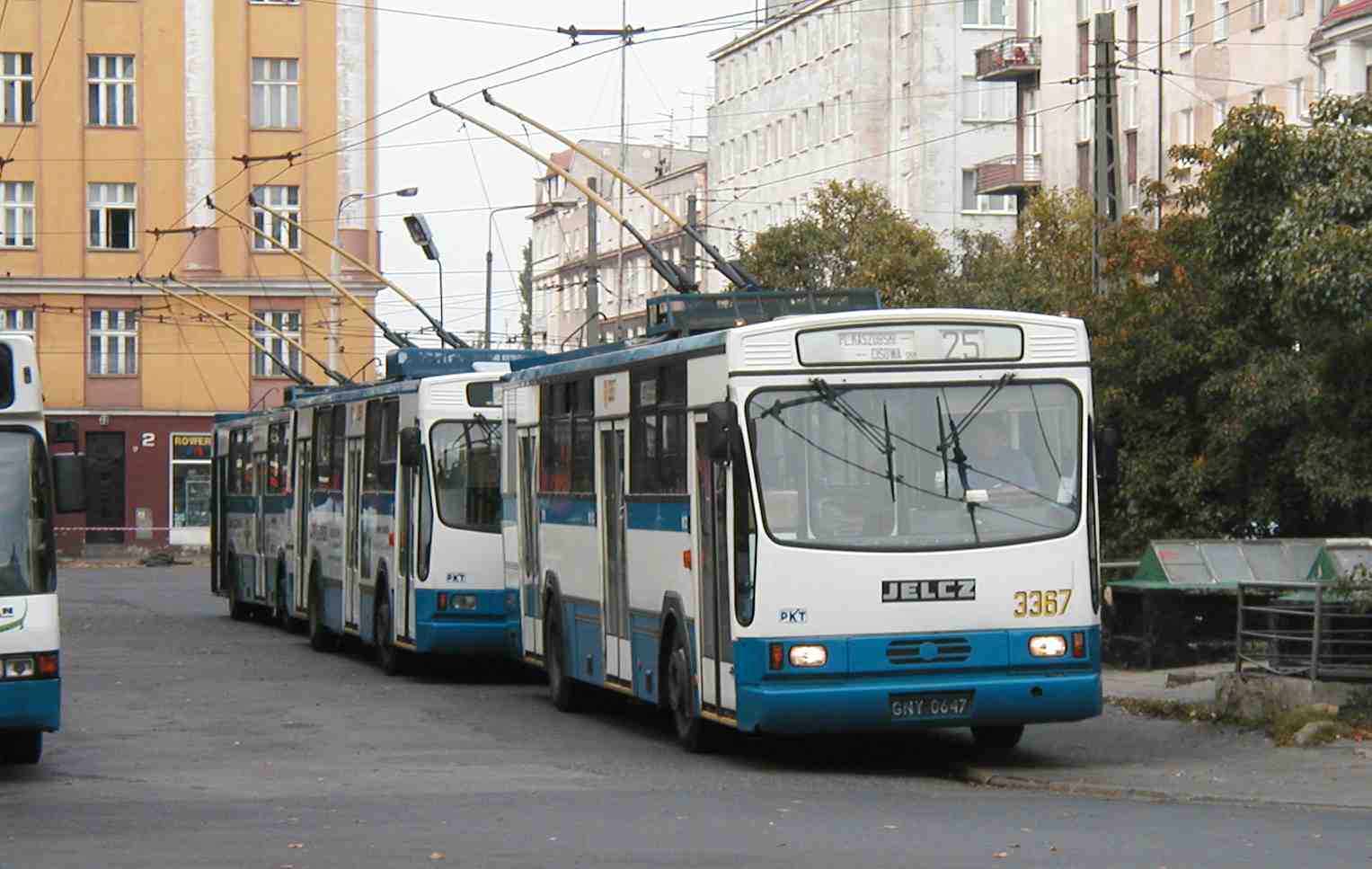
A line-up of Jelcz trolleybuses, headed by 3367, in the main town square.
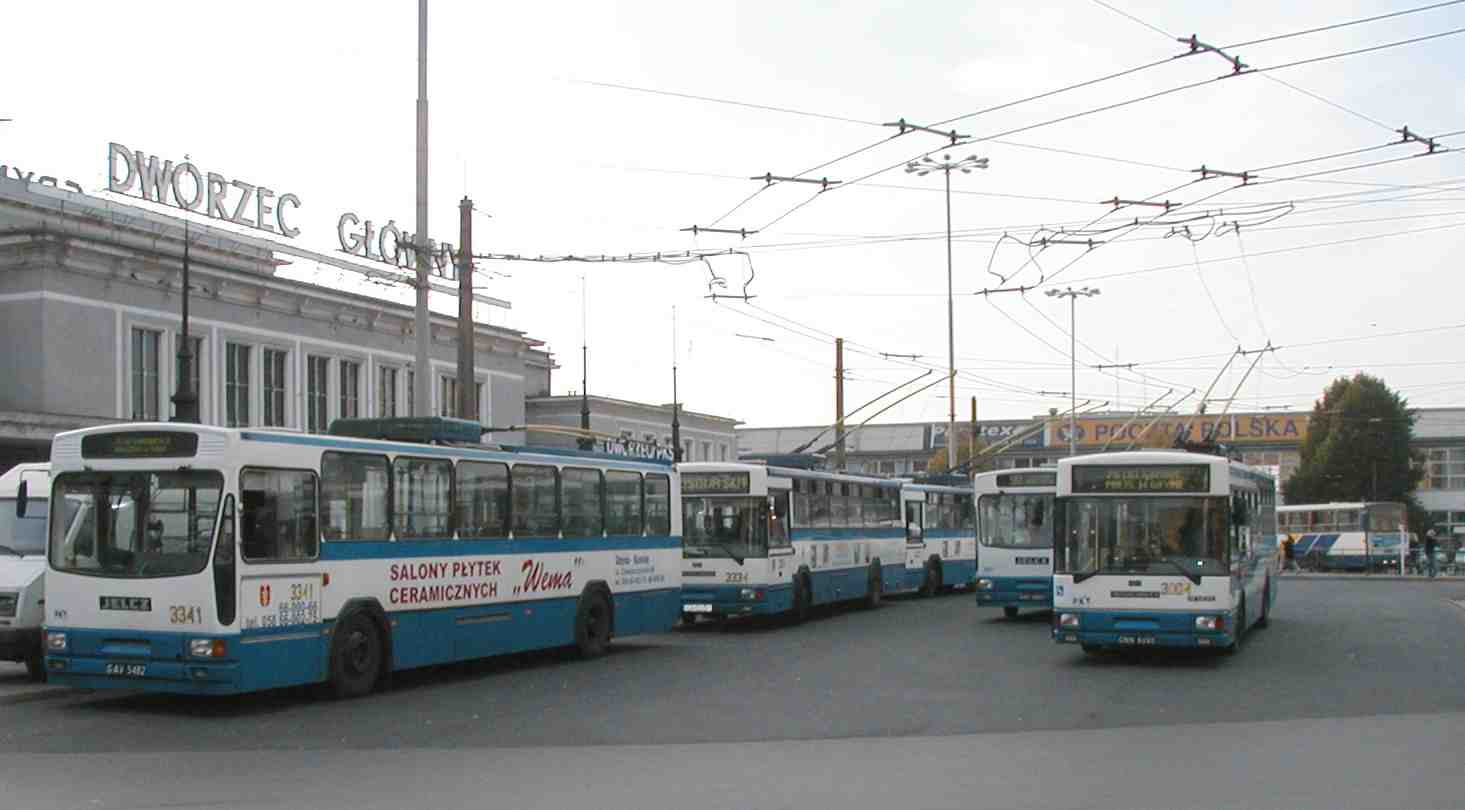
The main station, just outside the town centre. 3004, on the right, is on a piece of detached wiring provided to keep the air up on parked trolleys. The station area was frequently packed with trolleys, as it was a confluence of a few routes.
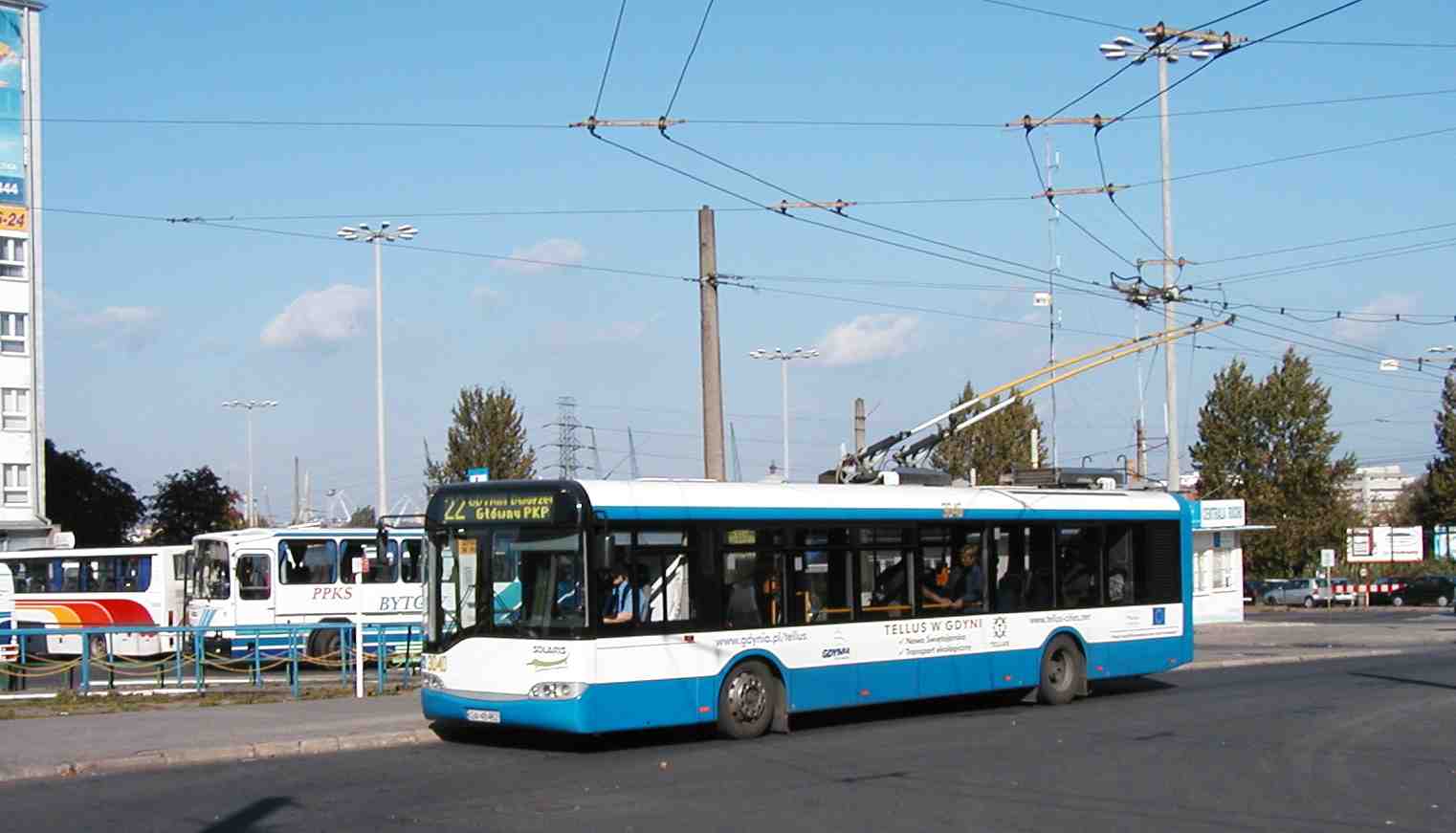
Solaris 3040 at the far end of the same location a couple of days later.
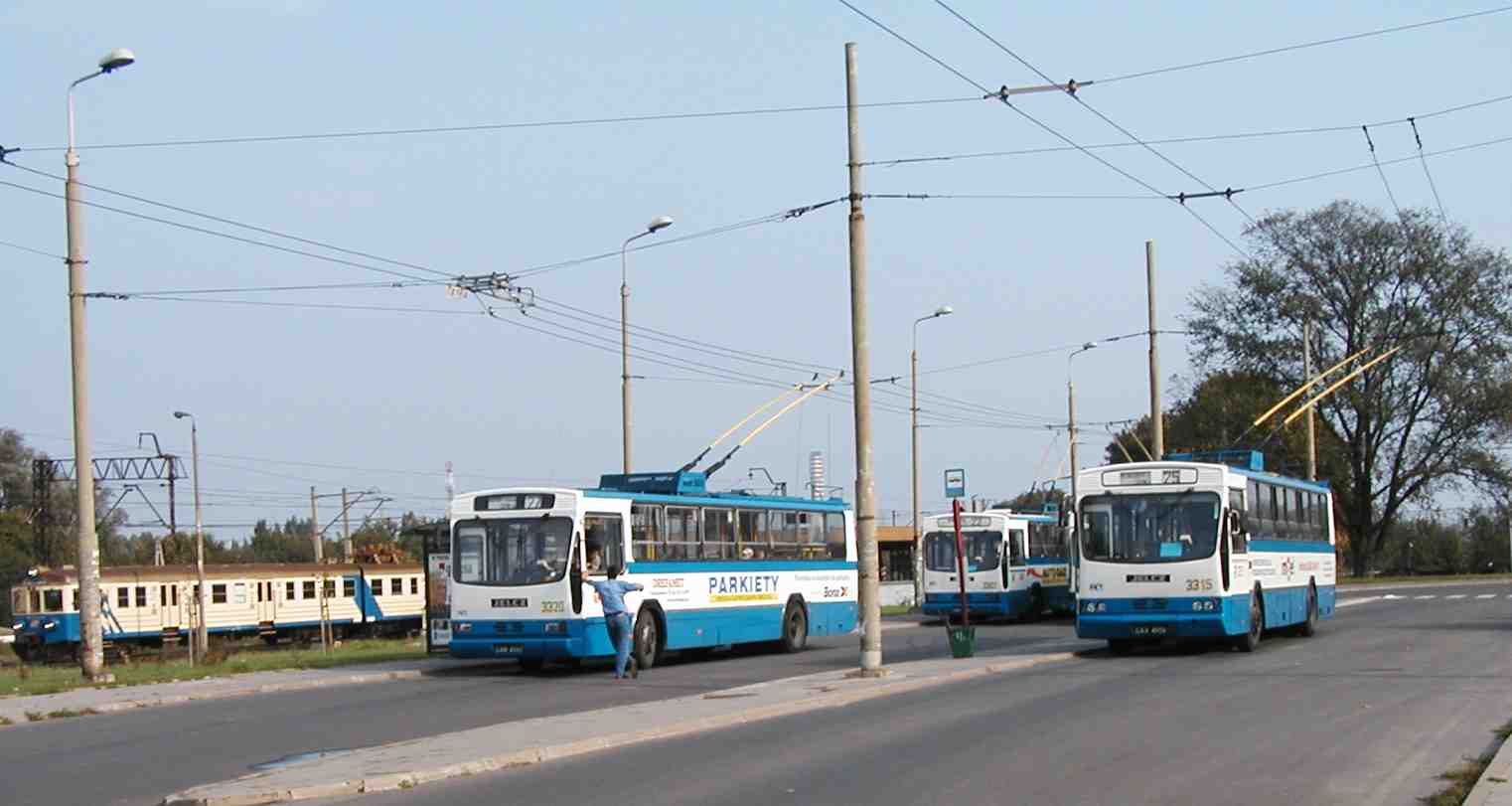
One of the out-of-town termini that served a specific purpose - this one a railway station.
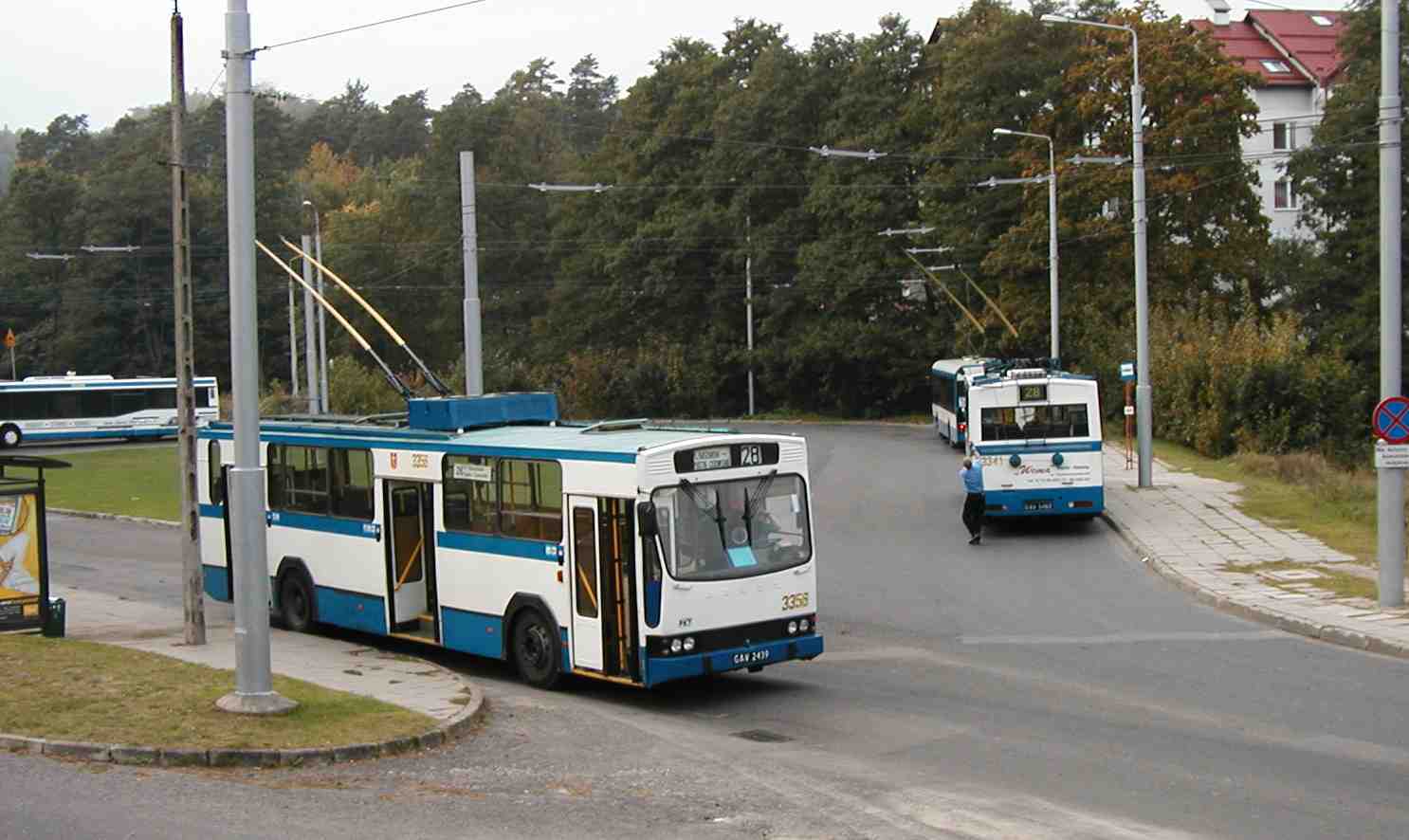
This terminus served a housing estate.
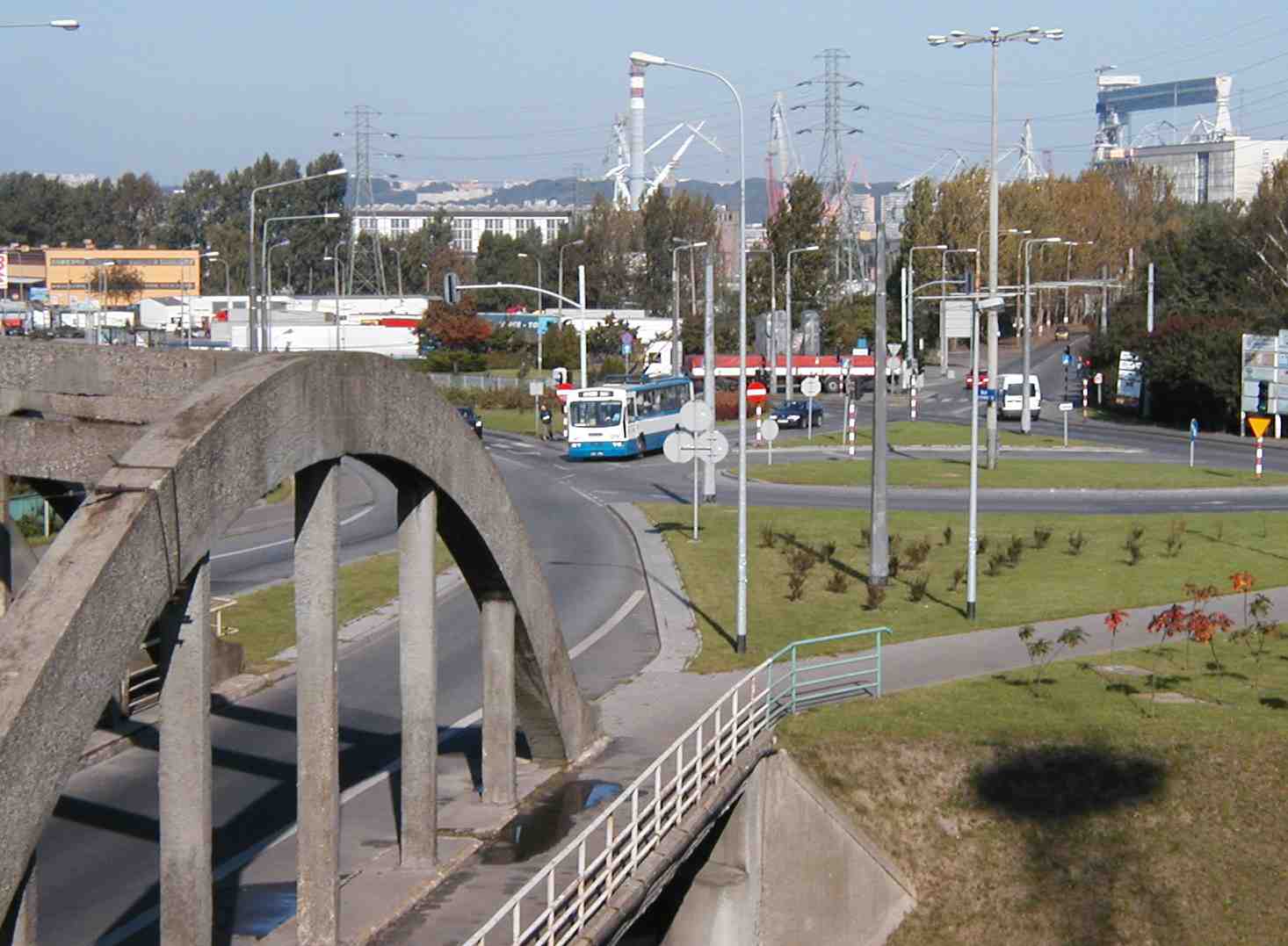
The entrance to the massive Gdynia shipyards used to be accessible only by these two side-by-side bridges - one in and one out. These days they are both used as out bridges.
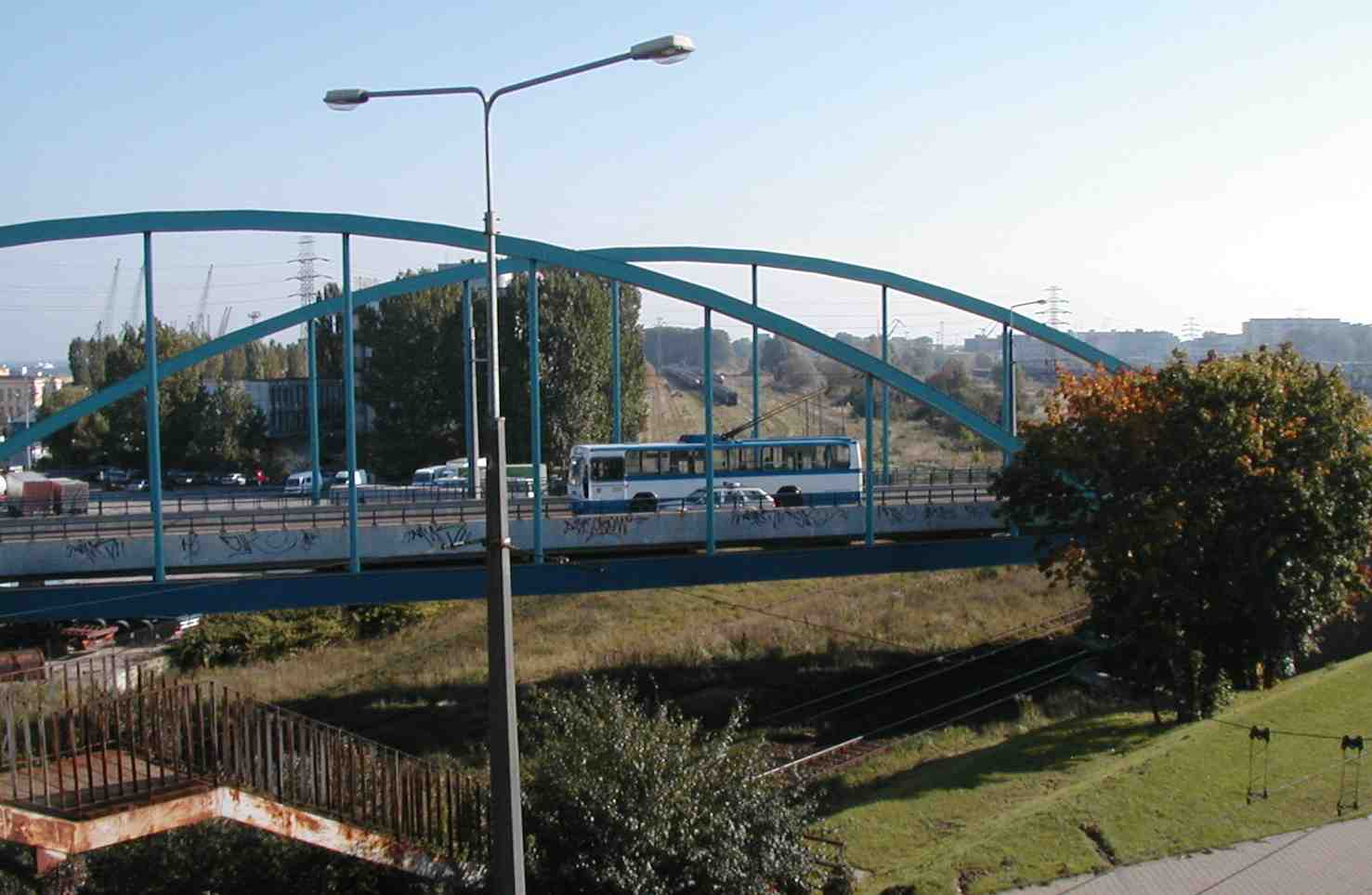
This new bridge is the new way into the shipyards. The old bridges were the site of pitched battles when the shipyard workers went on strike against communism in 1970. These were the precursor to the more well-known Solidarity strikes in nearby Gdansk in 1980.
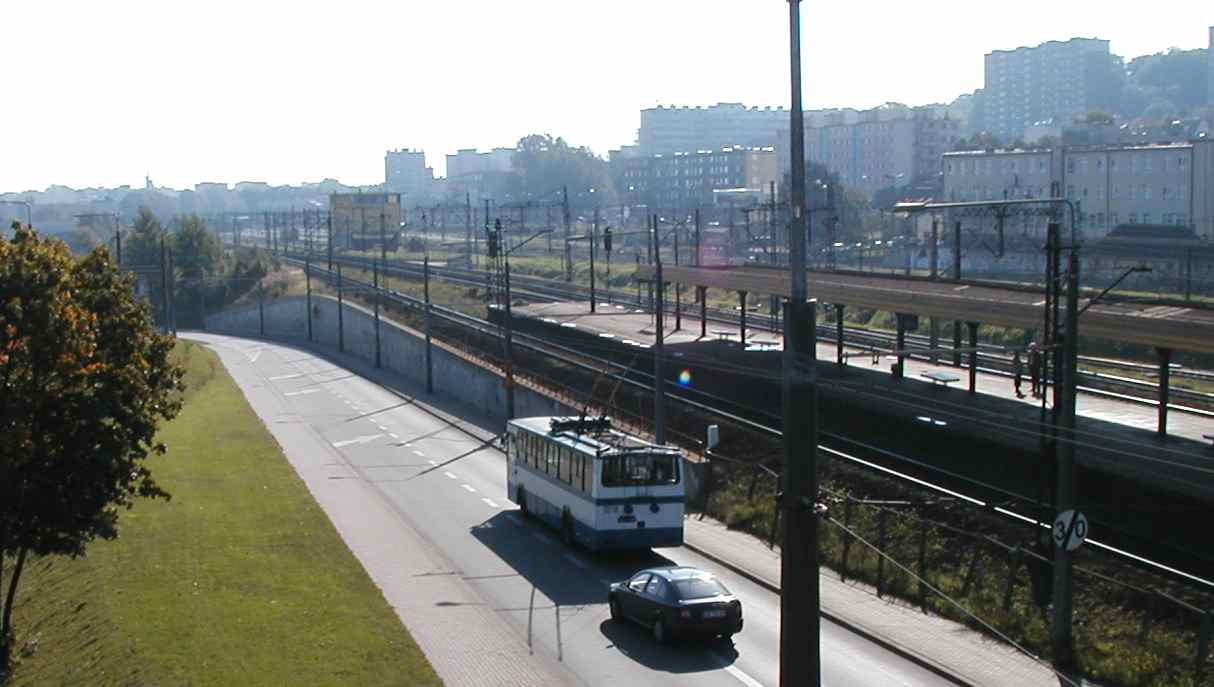
Leaving the shipyards, the route follows the railway back to the station, with huge blocks of austere-looking flats on the other side.
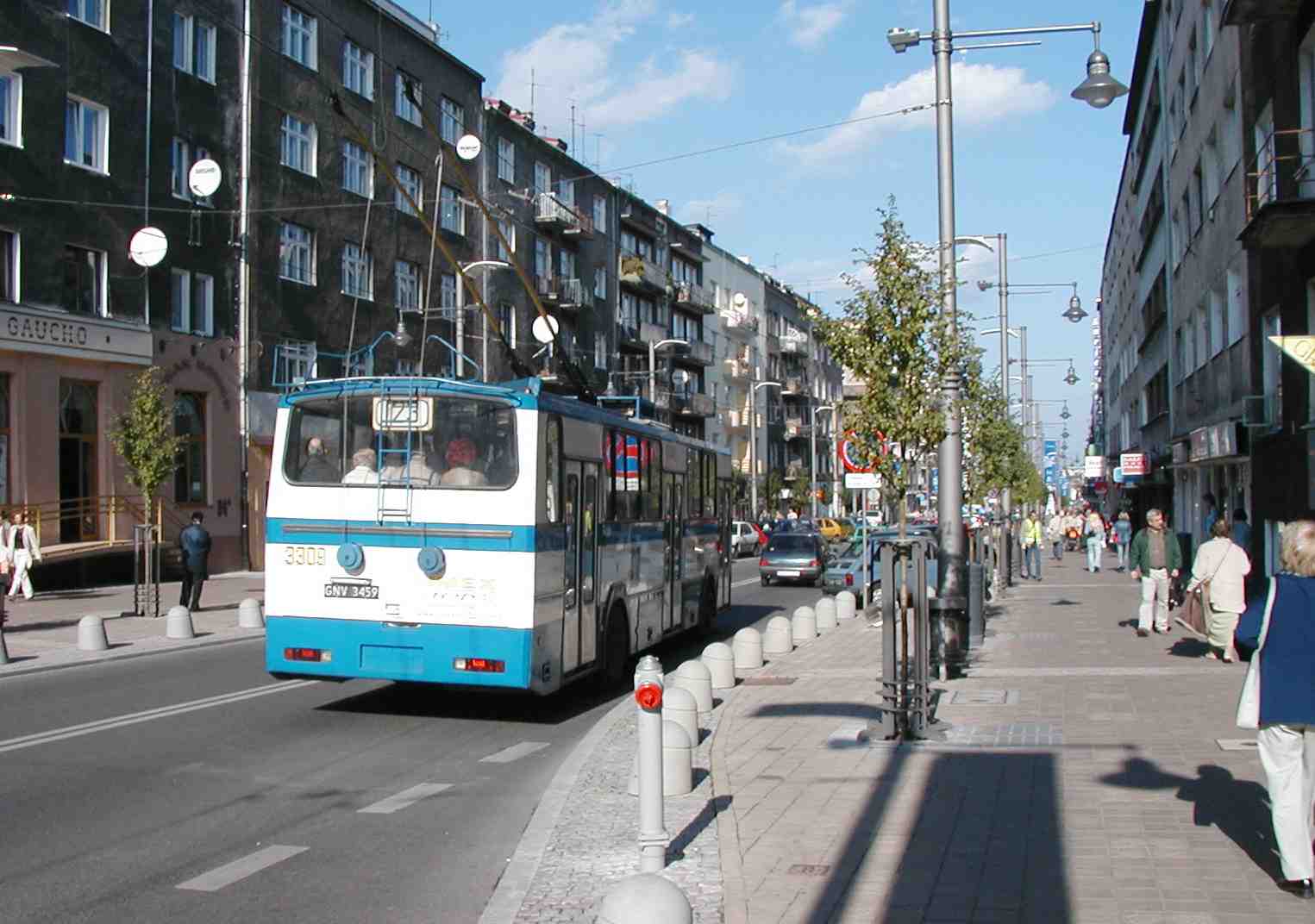
In contrast, the town centre looked to be quite affluent. Mobile phones, designer clothes, fancy shops and flash cars abounded. The difference between here and the West, we concluded, was that money was as available, but few owned their own homes.
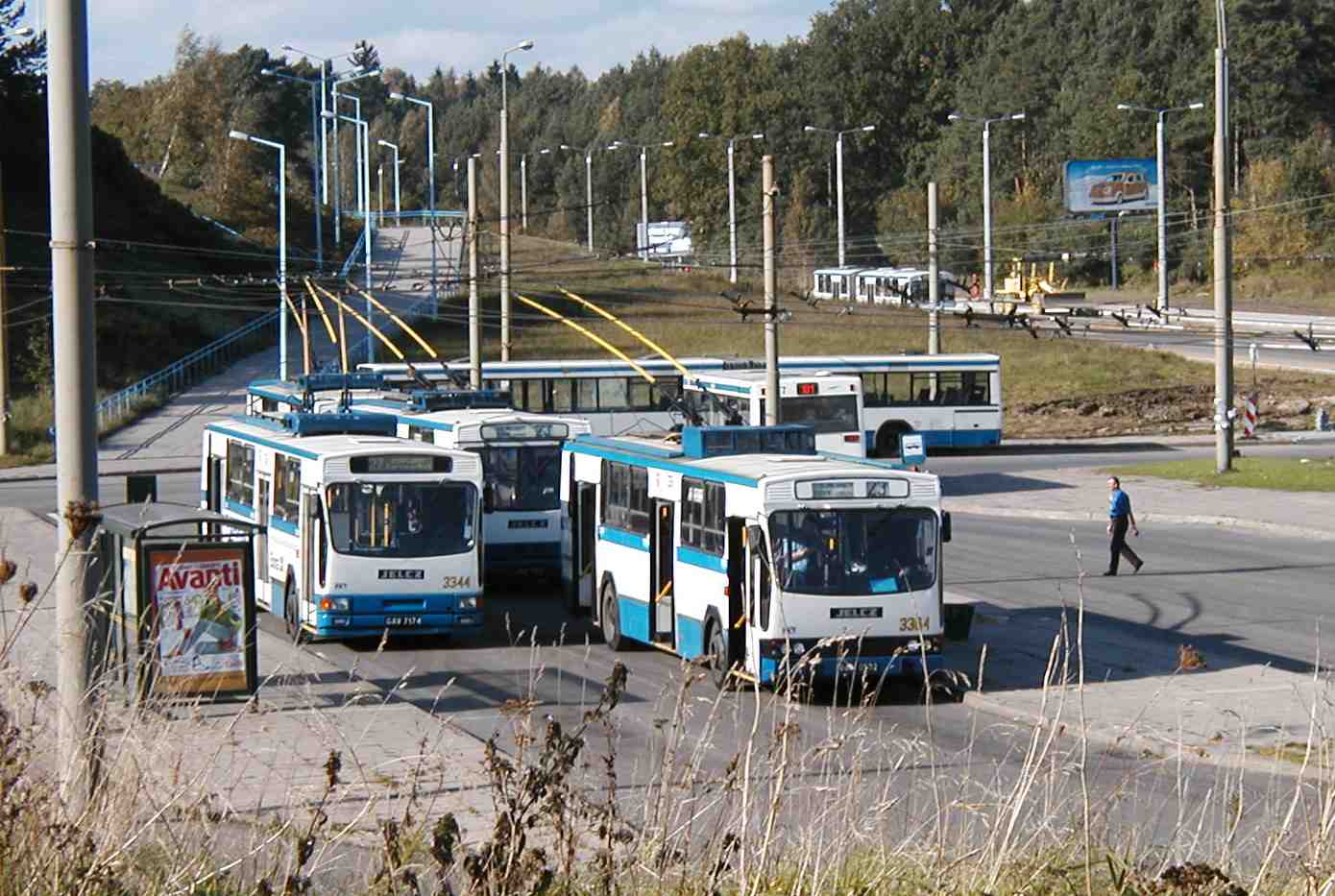
Another out-of-town terminus, this one serving a newly-constructed supermarket, accessed by the ramp behind the trolleybuses. The road behind was supposed to be a trolleybus extension, but we saw little sign of any trolleybus construction.
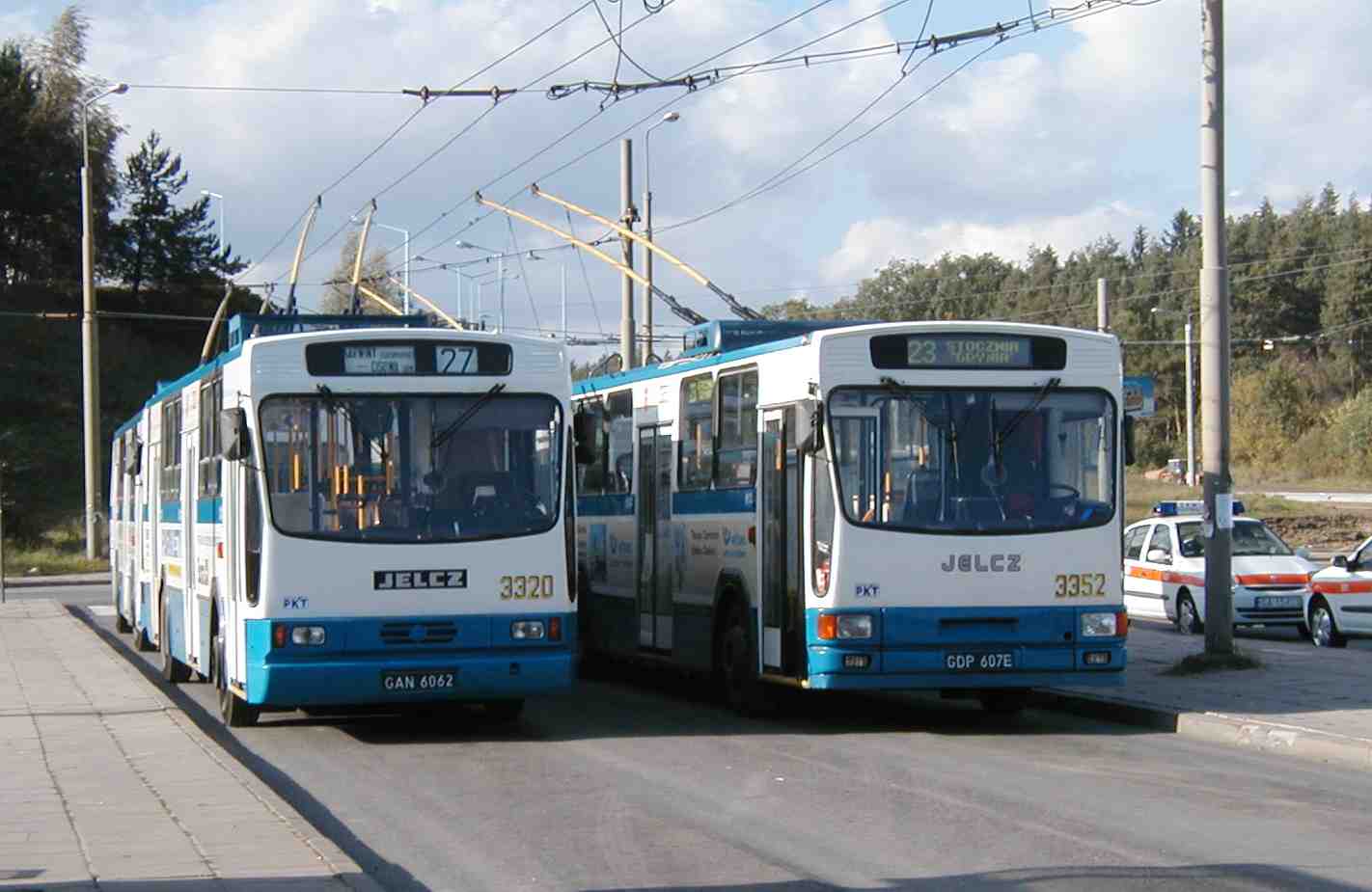
The location was the terminus of the 23 and 27. 3320 & 3352 form the front of the queues of the two routes.
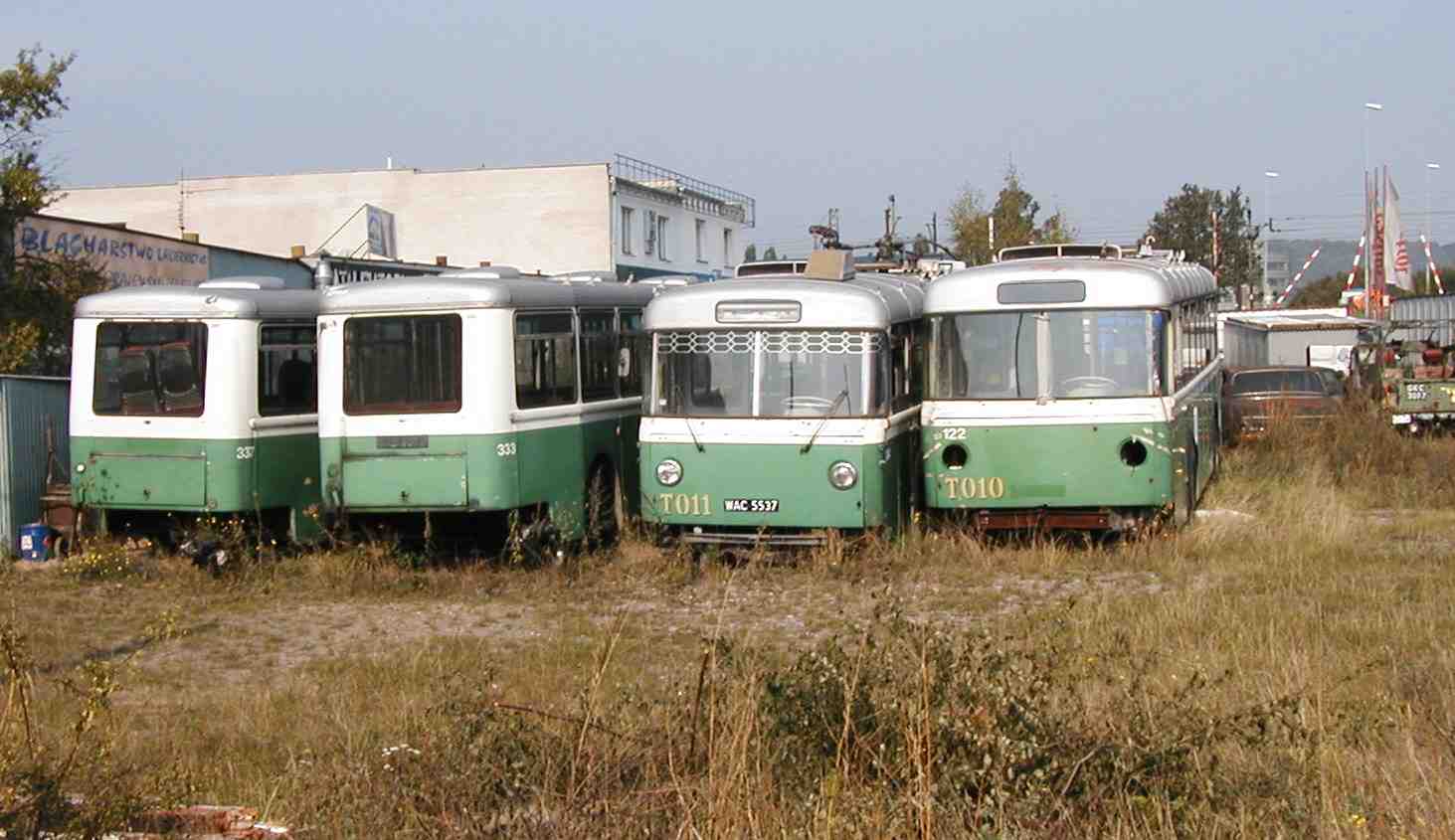
The two ex-Warsaw trolleybuses T0010 & T0011 with their trailers.
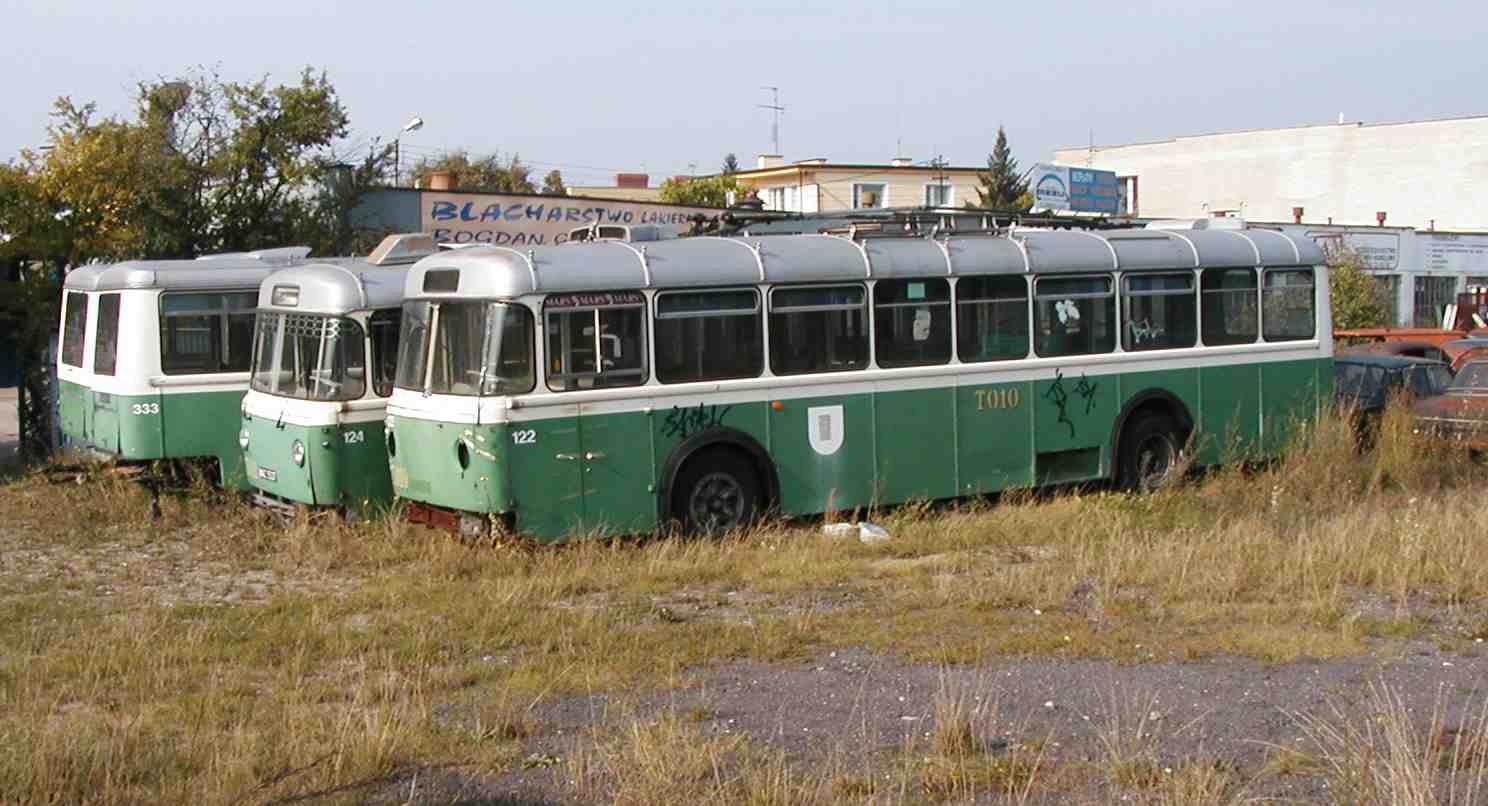
These were parked up apparently waiting to be displayed as part of a nearby museum.
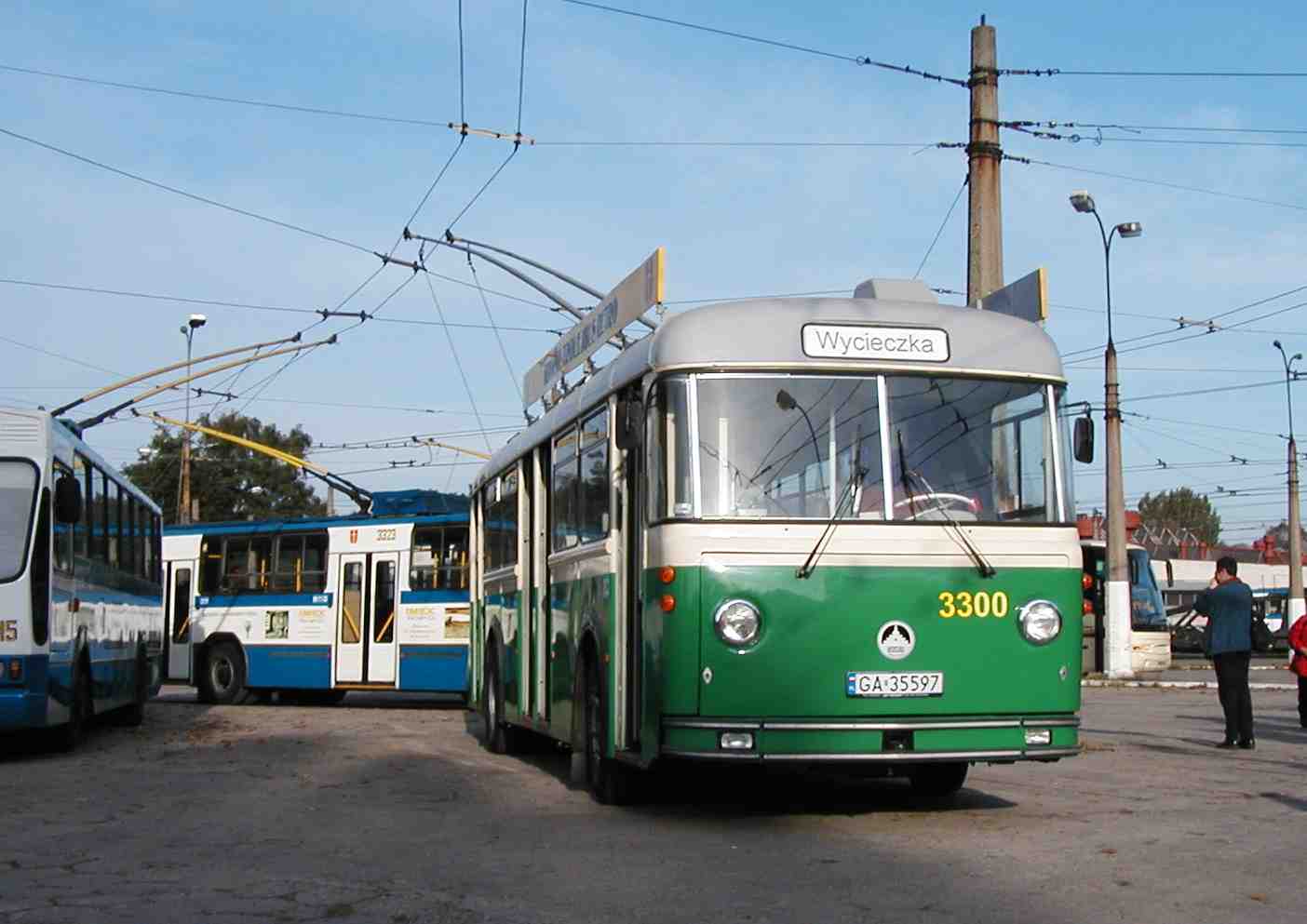
Saurer 3300 having been prepared at the depot ready for our party.
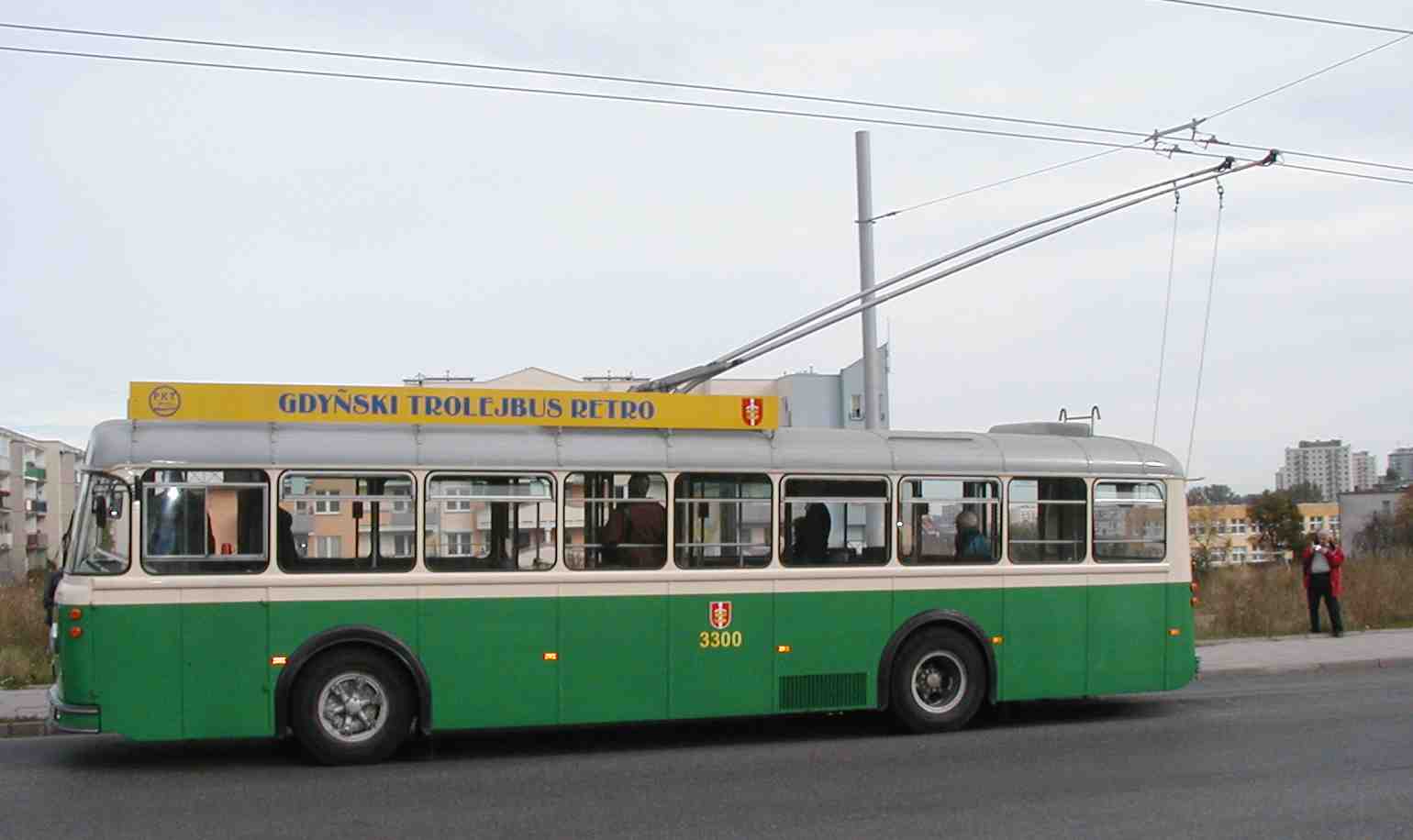
3300 out in the sticks poses for photographs.
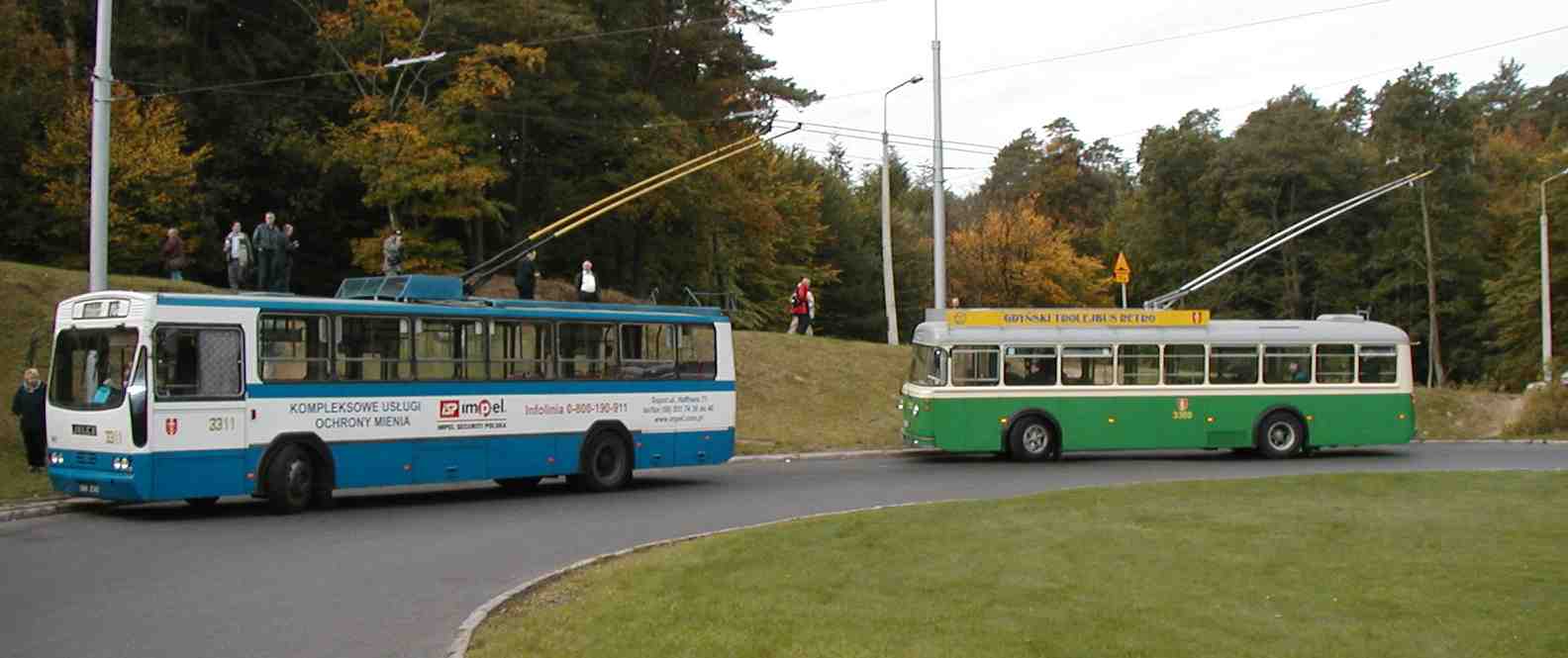
3300 joins Jelcz 3311at the terminus of route 28. We only toured a small proportion of the system in the time we had allowed, but it was a great experience. I also got to drive 3300 back at the depot - its not often you can drive a Swiss trolleybus in Poland!
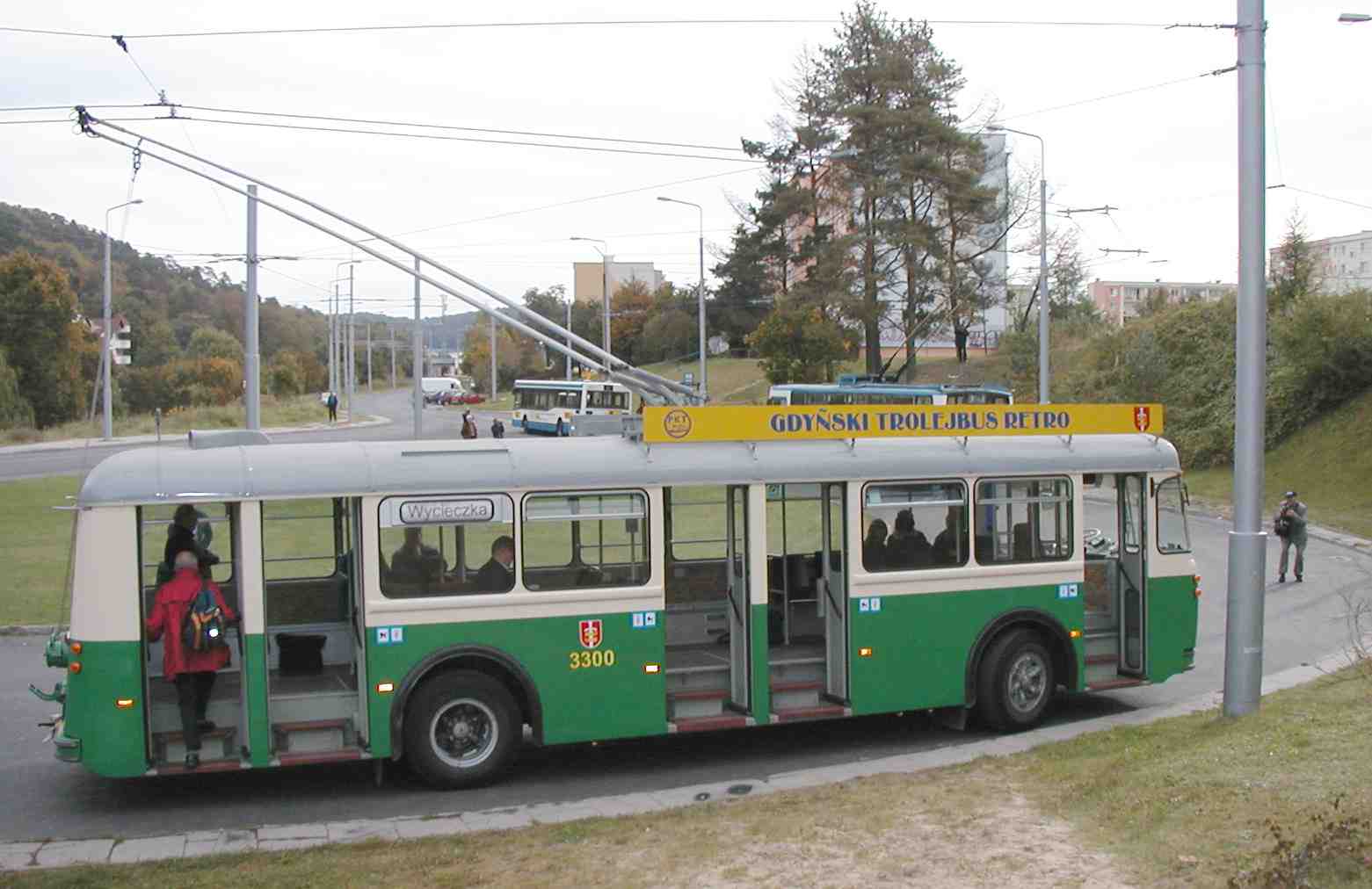
A study of 3300's nearside.
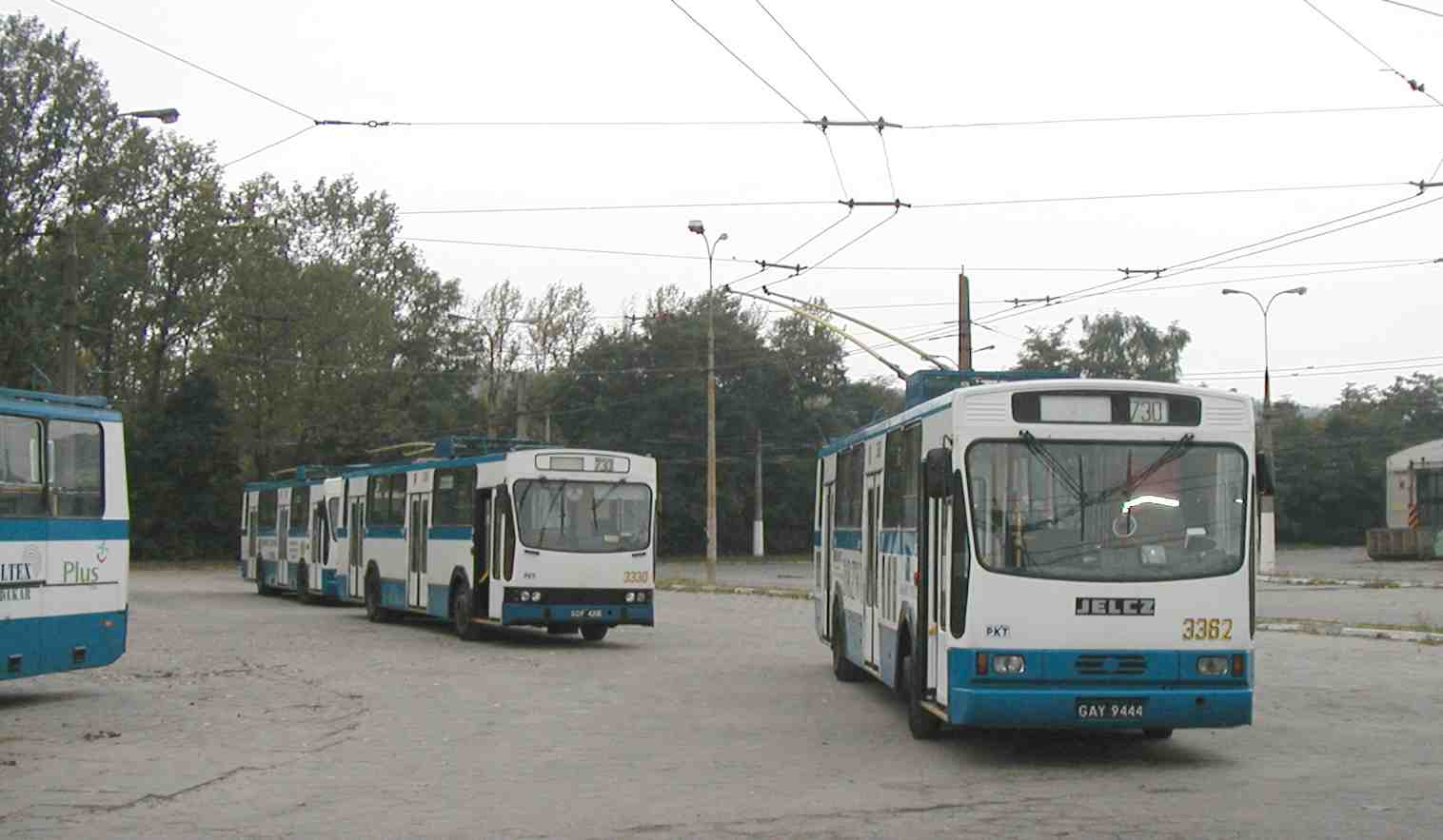
General view of the depot yard during the day, when most trolleybuses were out on the road. Several withdrawn trolleybuses were also in evidence, along with the overhead fleet.
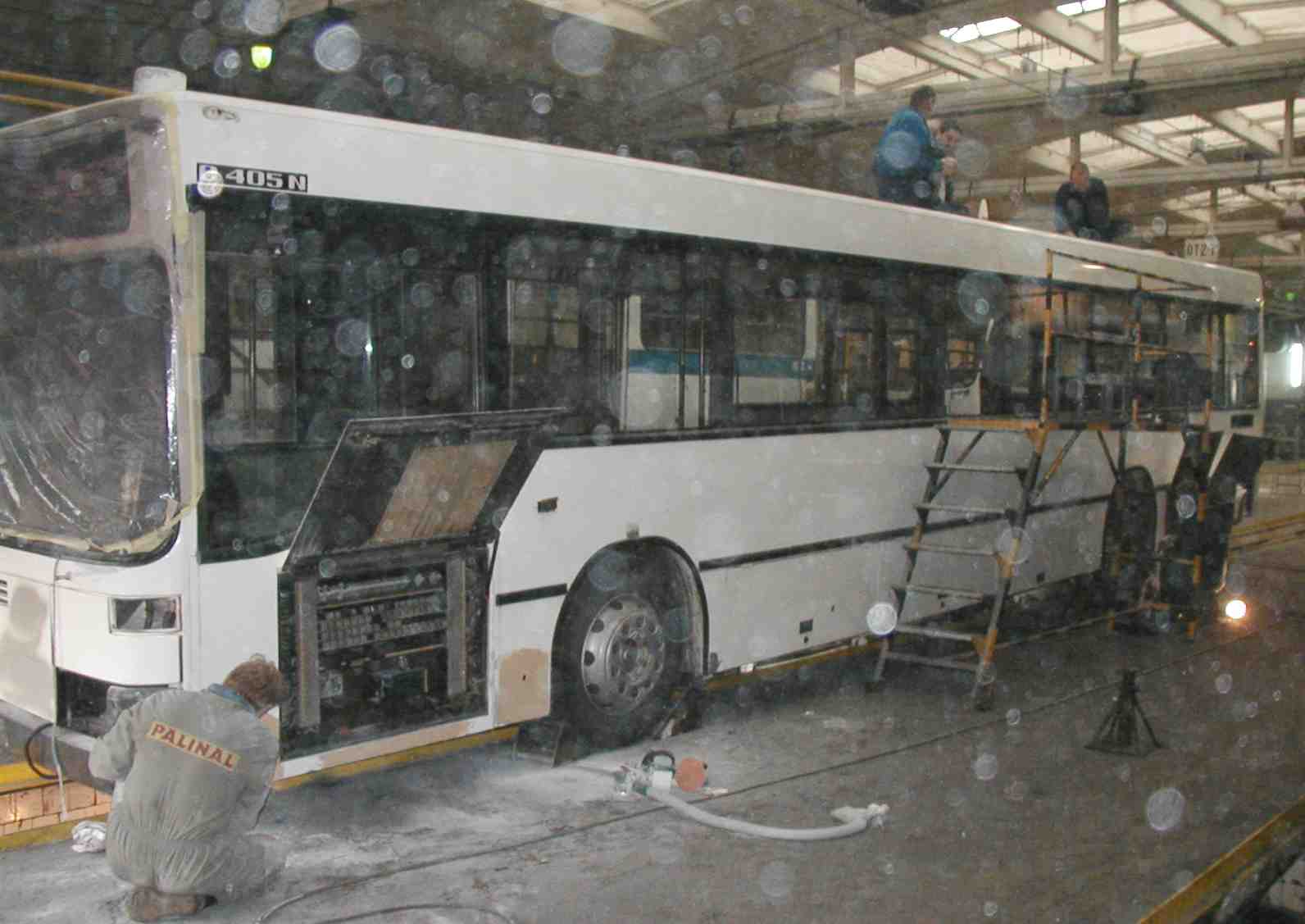
The Mercedes 405N being converted to a trolleybus. The poor quality of the photograph is due to the large amounts of dust in the air - a fact that sadly I didn't appreciate until I reviewed the photos later.